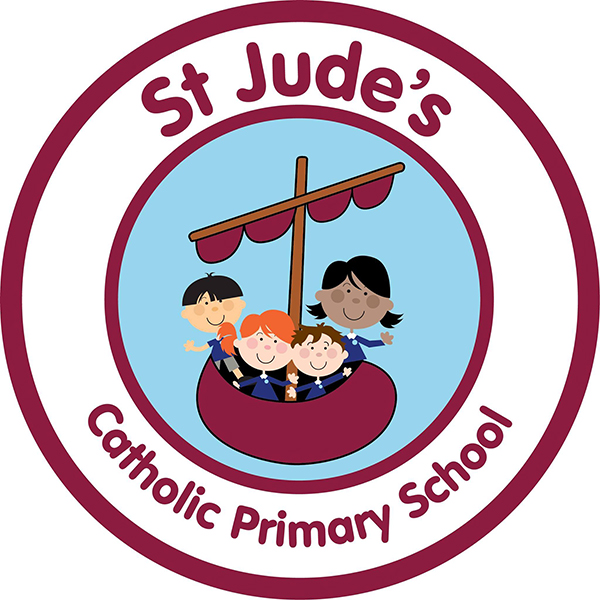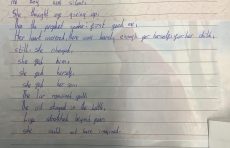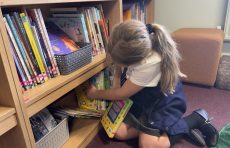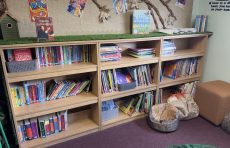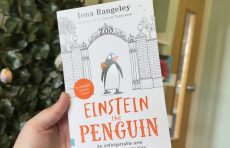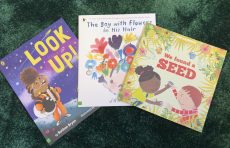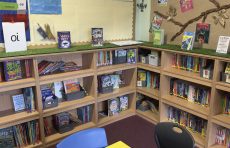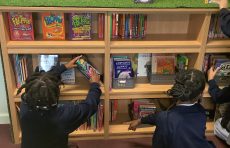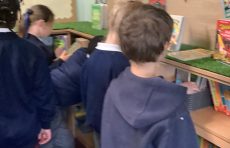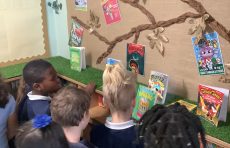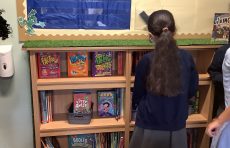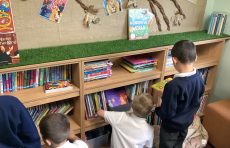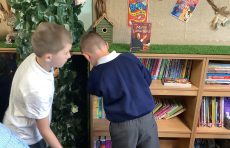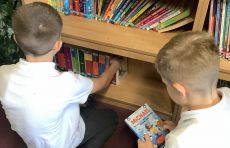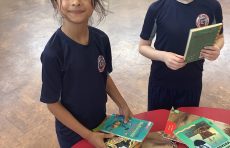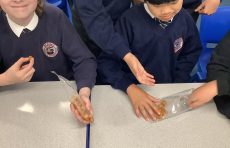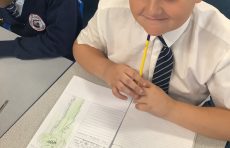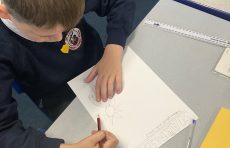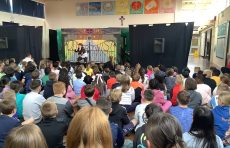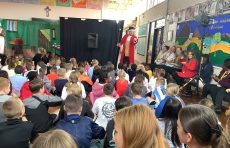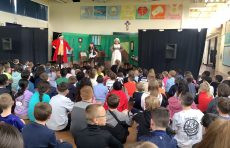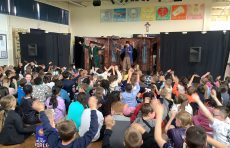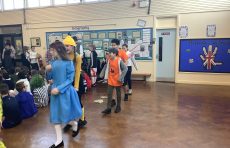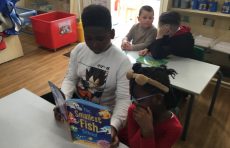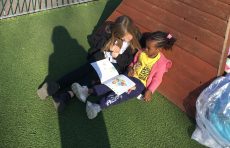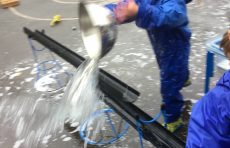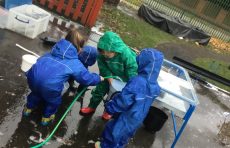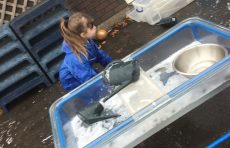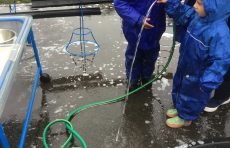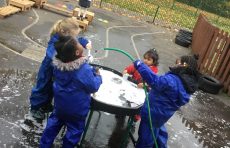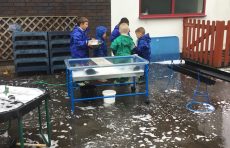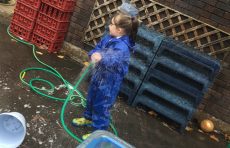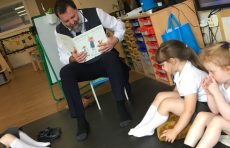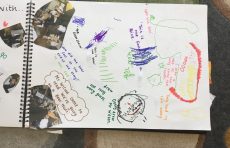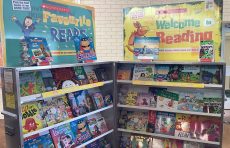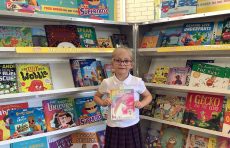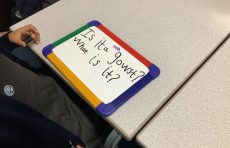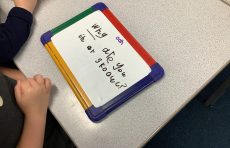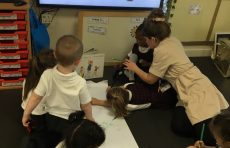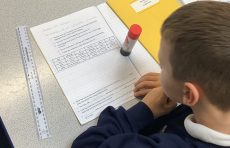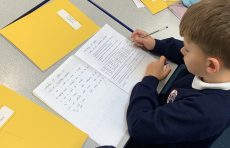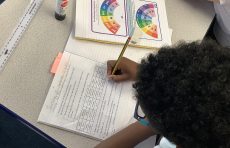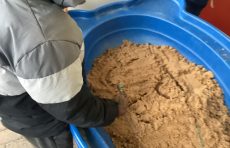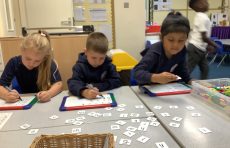Intent
English is at the heart of all children’s learning. We have listened to our children’s voices and created a curriculum based on their interests that encourages them to become enthusiastic and engaged with English. We have agreed whole school curriculum drivers which run through all our curriculum subjects. We provide our children with enrichment opportunities and experiences to give meaning and purpose to the words they read and write. It is our intention to immerse pupils in the wonders of quality texts to instil a love for reading and a confidence to explore their imagination. With an emphasis on vocabulary we create opportunities for speaking and listening to enable children to be able to communicate effectively. We strive to teach our children how important their reading, writing, speaking and listening skills will be in the real world and the potential opportunities they can bring. English teaching is not limited to English lessons and high expectations are held in every subject where English skills can be used to nurture a child’s natural talent or interest in another subject. By giving this context to their learning, we want to equip our children with the perseverance to develop their oracy skills which will influence their ability to read and write fluently, understanding the value of English to them now, and in their futures.
Implementation
English teaching is progressive and in line with the National Curriculum. Teachers create a positive attitude to reading and writing in their classrooms and reinforce an expectation that all children are capable of achieving high standards in these areas. Our English lessons develop pupils’ spoken language, reading, writing, grammar and vocabulary. English skills are transferred across our curriculum giving our children the skills to access all subjects such as providing them with the reading skills to access reading materials and carry out research, to write up experiments and to recall significant events in History. Resources are updated on a regular basis and we have developed a range of extra activities which are used to promote English within the school including World Book Day, Weekly class writers’ and readers’ awards, author and poet visits, author theme days, Reading Plus, library sessions and our parents library as well as holding Book Fairs in school. Reading and Writing is highly valued at St. Jude’s and each week a ‘Reader of the Week’ and ‘Writer of the Week’ is chosen from each class to promote these subjects.
Writing
Units of work are carefully designed text-led learning journeys, with a clear starting point and end outcome. We know the value of varied vocabulary and this is developed and practised across all subjects in the curriculum constantly. We use some ‘Talk for Writing’ strategies to encourage pupils to express their ideas and to develop more sophisticated vocabulary. We develop writing skills through modelling and scaffolding of new material so that our children have the confidence, ability and stamina to write at the age expected standard. Children are taught new writing skills and then given the opportunity to practise these within independent extended writing tasks. Children are then taught how to evaluate, edit and improve their writing to the best of their ability. We promote the importance of written work by providing a writing purpose and opportunities for children’s writing to be read aloud and listened to by an audience. Opportunities are then provided to apply these taught skills in other areas of the curriculum.
Handwriting
Cursive handwriting is to be used across the school. Handwriting is to be taught during Read Write Inc. sessions in Early Years and Key Stage 1. Interventions will take place in Key Stage 2 where necessary. Handwriting is incorporated into all English lessons, maintaining high expectations of all children. We follow the Morrells Handwriting scheme when children are ready to join.
Spelling
Systematic synthetic daily phonics is taught following the Read Write Inc Programme throughout Early Years and Key Stage 1, beginning in the summer term of Pre-school. Pupils are grouped according to ability across the year groups. Progress is tracked throughout the year by the early reading and phonics lead and groupings are adjusted accordingly. Pupils in Year 1 have a National Phonics Screening Test in June. Pupils who do not achieve the expected standard re-sit the test the following year when they are in Y2.
When pupils complete the Read Write Inc phonics programme they begin ‘No-nonsense spelling’. This programme is taught throughout Key Stage 2.
Reading
Our pupils are encouraged to read for pleasure and to read widely through our reading schemes and school library. Read Write Inc. develops the children’s phonic awareness to help the development of reading by segmenting and blending sounds. We use the Read Write Inc. reading scheme throughout Early Years and Key Stage 1 where books are fully decodable and correlate with where the child is up to in the scheme. Children are also sent home a book which is very closely matched to their reading level from Oxford Reading Tree, Project X or Floppy Phonics and a book to read for pleasure with an adult, which will be from the school library.
In Key Stage 2 our reading lessons cover a variety of poems, fiction and non-fiction texts and aim to advance reading fluency and comprehension skills. Reading lessons are taught predominantly to whole classes with some small group sessions taking place when required. The children will be heard reading regularly, both individually and in groups. The two reading schemes used for reading at home are Oxford Ready Tree Treetops and Literacy World. Parents are given reading guidance and clear expectations to support reading at home through the use of home school reading diaries.
Reading is not limited to our English Curriculum, reading is integrated in all subjects to encourage independence and to extend vocabulary and opportunities to improve communication. Reading for pleasure is promoted in all classes through the use of Reading Together sessions daily, the school library and Reading club.
Impact
- Pupils in our school will enjoy reading and writing and have positive attitudes towards English.
- Children will have a wider vocabulary that they can apply in both written and spoken contexts.
- Their skills will be evident across other areas of the curriculum where the quality of work is as high as English lessons.
- Pupils will enjoy reading across a range of genres and will use a range of strategies for decoding words, not solely relying on phonics.
- Parents and carers will have a good understanding of how they can support reading at home and contribute regularly to home-school diaries.
- Children will have built the foundations of early reading and pre-writing skills within the early years to enable them to reach their full potential.
- Pupils will have a good knowledge of a range of authors and poets.
- The % of pupils working at ARE within each year group will be at least in line with national averages.
- The % of pupils working at Greater Depth within each year group will be at least in line with national averages.
At St Jude’s we assess every half term. At the end of each term teachers will send subject leaders the percentage of children achieving/ not achieving and this will then be shared with the curriculum link governor.
Phonics and Reading
Systematic synthetic daily phonics is taught following the Read Write Inc Programme throughout Early Years and Key Stage 1, beginning in the summer term of Pre-school. Pupils are grouped according to ability across the year groups. Progress is tracked throughout the year by the early reading and phonics lead and groupings are adjusted accordingly. Pupils in Year 1 have a National Phonics Screening Test in June. Pupils who do not achieve the expected standard re-sit the test the following year when they are in Y2.
When pupils complete the Read Write Inc phonics programme they begin ‘No-nonsense spelling’. This programme is taught throughout Key Stage 2.
Reading
We use the Read Write Inc reading scheme throughout Early Years and Key Stage 1 where books are fully decodable and correlate with where the child is up to in the scheme. Children are also sent home a book which is closely matched to their reading level from Oxford Reading Tree, Project X or Floppy Phonics and a book to read for pleasure with an adult, which will be from the school library.
English Subject Overview
English-Subject-Overview-LTP-2025-2026
English Progression – The Primary National Curriculum
english-progression-primary-national-curriculum
English Policy
english-policy-2024
Reading Policy
reading-policy-2024
Websites to support your child with Reading and Writing at home, click on each website to explore.
Writing
Crickweb
The Literacy Shed
Top Marks – writing
Grammar, Punctuation and Spelling
Top Marks – SPaG
Spelling City
Speak and Spell
Reading
Oxford Owl (access to 500 free e-books)
Books for Keeps – Online magazine
Book Trust
Love Reading 4 Kids
The Summer Reading Challenge
Roald Dahl
Learning By Questions – click here to login
